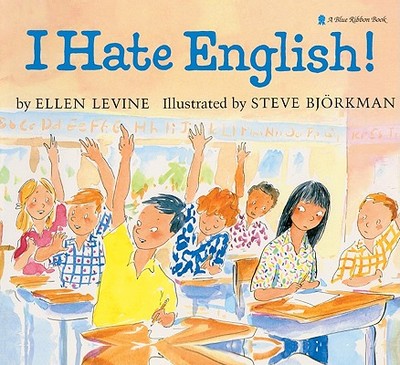Ellen Levine passed away a few years ago, but she left us some great books on a variety of topics.
Books
978-043-977-7339
Henry Brown doesn't know how old he is. Nobody keeps records of slaves' birthdays. All the time he dreams about freedom, but that dream seems farther away than ever when he is torn from his family and put to work in a warehouse. Henry grows up and marries, but he is again devastated when his family is sold at the slave market. Then one day, as he lifts a crate at the warehouse, he knows exactly what he must do: He will mail himself to the North. After an arduous journey in the crate, Henry finally has a birthday -- his first day of freedom.
Well deserving of that Caldecott Medal, with illustrations by Kadir Nelson. This book is based on a true story!
So many concepts your child hopefully is not familiar with - not even knowing how old you are? Not having a choice of whether you will be with your family? Being so desperate to escape, you will nail yourself into a box? Foreign ideas, but still entirely relevant today. Use your understanding of your own child to engage in discussion about history and current world issues.
So many concepts your child hopefully is not familiar with - not even knowing how old you are? Not having a choice of whether you will be with your family? Being so desperate to escape, you will nail yourself into a box? Foreign ideas, but still entirely relevant today. Use your understanding of your own child to engage in discussion about history and current world issues.

978-078-576-8326
When her family moves to New York from Hong Kong, Mei Mei finds it difficult to adjust to school and learn the alien sounds of English.
When people move to the United States - or to any new country - they generally want to learn the language there. After all, we all want to be able to communicate our wants and needs, and to be able to make friends! Languages are not learned overnight, however, and when the 'new' language has a completely different alphabet, it is even harder.
Extension: Print out a copy of the Cyrillic alphabet (used in Russia, among other places), with phonetic pronunciations, and practice writing your names in it. While Cyrillic is much easier (with fewer symbols) than Chinese, it is still different enough for children to understand the difficulties faced by someone trying to learn a whole new writing system.
Extension: Print out a copy of the Cyrillic alphabet (used in Russia, among other places), with phonetic pronunciations, and practice writing your names in it. While Cyrillic is much easier (with fewer symbols) than Chinese, it is still different enough for children to understand the difficulties faced by someone trying to learn a whole new writing system.

978-059-043-7240
The story of the five-hundred-year-old Treaty Oak in Austin, Texas, is told from the tree's point of view, covering the nation's history that took place during the tree's lifetime, and describing the malicious 1989 poisoning that nearly destroyed it
Keeping in mind that Levine took GREAT liberties with placing events around the tree, this is still a decent overview of some of the major events of US History. It is also an illustration of how the actions of one person can in a moment destroy things that were created over hundreds of years.
Extension: What types of trees grow in your area? Take a walk with a guide book in hand, and see how many you can identify. Then do some research - are they all native to your area, or were some planted for a specific reason? Are any essential habitat for a particular animal? Is there any sort of disease or pest that presents a problem for a particular tree type?
You might be surprised at how trees figure into the history of your town. Ours, for example, is named for the cottonwood trees planted by early citizens - most of which are now dying out, and if you really want to get into a fight, start pointing fingers at possible reasons. I'll stay out of that one, thank-you very much (but I will also fight to keep our the library's last cottonwoods standing as long as possible!)
Extension: What types of trees grow in your area? Take a walk with a guide book in hand, and see how many you can identify. Then do some research - are they all native to your area, or were some planted for a specific reason? Are any essential habitat for a particular animal? Is there any sort of disease or pest that presents a problem for a particular tree type?
You might be surprised at how trees figure into the history of your town. Ours, for example, is named for the cottonwood trees planted by early citizens - most of which are now dying out, and if you really want to get into a fight, start pointing fingers at possible reasons. I'll stay out of that one, thank-you very much (but I will also fight to keep our the library's last cottonwoods standing as long as possible!)
 |
| The one closer to the road has died since this photo was taken. :( |

Comments
Post a Comment